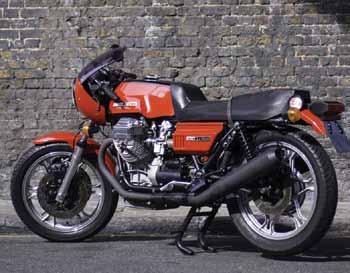Bikes for Good
Wheels to Work Everyone agrees we need to get more young people onto bikes – Wheels to Work already does it
M
otorcyclists are getting older – it's become a truism over the last 20 years that fewer and fewer under 25s, or even 30s, are getting into biking. Whatever the cause – sky-high insurance premiums, busier roads, pay-as-you-go cars – the typical British motorcyclist is now in his or her fifties. But in the background, a scattering of non-profit making groups has been working hard to enable younger people to get onto two wheels, especially those on low incomes. Welcome to Wheels to Work (W2W). There are currently 22 Wheels to Work groups across the UK – that's down from 35 a decade ago, which is partly down to cut backs in local authority spending, as most W2W schemes are part-funded by local Councils. Most of them are CICs (Community Interest Companies) which seek to cover their costs and reinvest any profit. Their aim isn't profits for shareholders, but to provide a social service. The people they are trying to help are under 30s on a low income who don't have their own transport and struggle to get to work or college – it's no coincidence that many Wheels to Work schemes are based in the more rural counties, where commutes are typically longer and public transport almost non-existent. To fill the gap, W2W groups hire 50 or 125cc scooters or geared bikes to anyone who needs one, on a monthly package which includes insurance and servicing – Council funding and the non-profit 30
Motorcycle R I D E R
ethos help keep costs to a minimum. Hiring a moped through a W2W can cost as little as £80 a month, which can be a godsend for cash-strapped teenagers who need their own transport. Wheels to Work Southwest is a perfect example. It was started in 2006 when Devon motorcyclist Max Jowett (the same Max who helped restore Mary's Bantam, see page 23) amalgamated three smaller W2Ws to form Devon Wheels to Work. Since then, it's been through several ups and downs. At one point it was one of the most successful W2W schemes in the country, with about 140 50cc and 125cc scooters and bikes on the fleet, expanding into a dealership with bike and kit sales to supplement income. Unfortunately, a contentious insurance claim saw their premium leap from £350 per bike to over £1000. To afford that, the fleet had to be cut back to 70 bikes, then 50. Then in a cruel double whammy the premises were flooded, destroying a lot of stock and making staff redundant. Undeterred, Max Jowett kept Devon W2W ticking over, servicing his existing riders on a mobile basis while gradually building the business back up again. Now, renamed W2W Southwest and with newly awarded charitable status, the group is growing, with 40 scooters on the fleet and a roll call of satisfied customers – over 5000 young riders have benefited in the last ten years. One of them is Max's daughter Annie, who looks after the office and when she was 16 had the use of a moped to get to the nearest bus route – there are buses in rural Devon, but not everyone lives close to one. One thing has changed in the people who make use of W2W, and that's the demographic. “It's quite varied,” Annie told me. “Most of Devon W2W riders used to be www.britishmotorcyclists.co.uk















